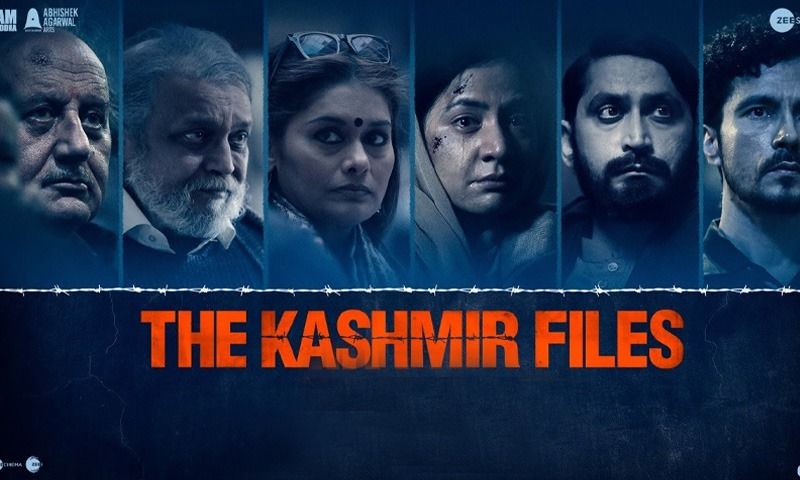I can start with my experience. As the movie hit the screens, it became clear over the weeks that it was a huge hit, joining the 100 crore club. The conversations have started in marketplaces, staff rooms, corridors, water points, buses, train compartments, metro stations, meat shops, food courts, and even the original under-the-banyan-tree choupal shop talk. I braced myself for eventual questions by colleagues. Over the years as attack after attack by terrorists, nullification of Article 370, and its aftermath came in the news, it was normal to be asked the inside view. I never got tired of sharing my home town’s history, folktales, legends, stories, facts, and other trivia.
Conversely, it also astounded me how little mainland Indians knew about its most troublesome state. One voice against the constant negative news in the media cannot convince people that there was a Sharda Peeth, that the Yogasutras were written there, that we have an Aristotle of the East; that not all Kashmiris want ‘Azadi’; not all Kashmiris picked up arms, that there were ideological refugees like me in our own country, in self-imposed exile; that a ‘gun-culture’ mafia (Intifada factory and its armed wing) had imposed an ‘Omerta’ on the pro-India silent majority; that Indian agencies had actually enabled terrorists to flourish; that the Dulat Doctrine had actually killed and displaced Kashmiri Pandits thrice over as well as insulted the thousands of Kashmiri Muslim victims of Islamism and so on and so forth.
‘The Kashmir Files’ has opened up much deeper conversations. We had external assessments going on for CBSE and one of the examiners happened to be listed as one Ms Wanchoo. I casually told the subject teacher concerned that Wanchoo surname meant Kashmiri origin and left it at that. By one of those strange universal coincidences, I got to meet the lady and as I have read numerous times and heard from people countless times, the magic of two Kashmiris meeting away from ‘watan’ or ‘mouj Kasheer’ happened; pleasantries exchanged and introductions made, I looked out for the deciding expression on her face — would she grimace and I would adopt a reserved attitude in the awkwardness bound to follow or as it eventually played out to my relief — a pleasant twinkling smile spread across and I relaxed, my usual extrovert personality setting in. Turned out we were from the same locality of Habba Kadal-Nai Sarak and their family had left in the nightmare of 1990.
This is what ‘The Kashmir Files’ had, intentionally or unintentionally, set out to do — change conversations to deeper, introspective ones instead of the usual shallow ‘nalmout’ (embrace) or ‘aman ki asha’ types, challenging accepted facts, truths and allow two members from the same region to reconcile with what had happened and how not just Kashmiris but people from Jammu region and Ladakh as well, became victims of the Great Game and the proxy war eventually started by the ‘constructed’ Pakistan against India.
Now that books are being written about communal riots, forgotten massacres are coming to the fore and the World Wide Web (WWW) is providing access to information about anything & anywhere and allowing people to publish their testimonies and memoirs, such conversations are needed. Of course, there’s always the possibility of propaganda and ‘factoids’ but then for anything to be debated, challenged, refuted, or proven it has to be acknowledged first. Denial does a disservice to people’s memories of their loved ones, lived experiences, their existence, and their aspirations which were brutally, cruelly cut short.
Because such conversations are going to come in classrooms, on the playground, in neighborhoods, among friends, among peers! The future generations owe it to us to make the situations bearable with truth — yes it did happen, yes the barbarism is present in human nature, yes certain strands of Islamic theology do give birth to othering, hatred, and communal mentality. Once the truth is acknowledged, reconciliation can happen, and solutions can be found for extremism and radicalism. Otherwise, fanatics ride on apologia, activism for the human rights of killers, and appeasement politics and keep recruiting masses into terror.
If rationality were to prevail over apologia, as it did with Ms Wanchoo and my conversation, ending in a hug and a spontaneous, “My folks back home will be thrilled to know this”, I’m sure these violent chapters in Indic Civilization will be overcome with grace, forgiveness, and healing.
(Arshia Malik is a Delhi-based writer, blogger and social commentator.)
(Disclaimer: Views expressed above are the author’s own.)











I am happy to see this here. I would broaden your question, ‘How should Kashmiris react to the Kashmir Files’ to ‘How should Muslim Indians react to the Kashmir Files’. I hope we will be able to evolve from the rut of reactions we have generated so far. Thank you for this piece.